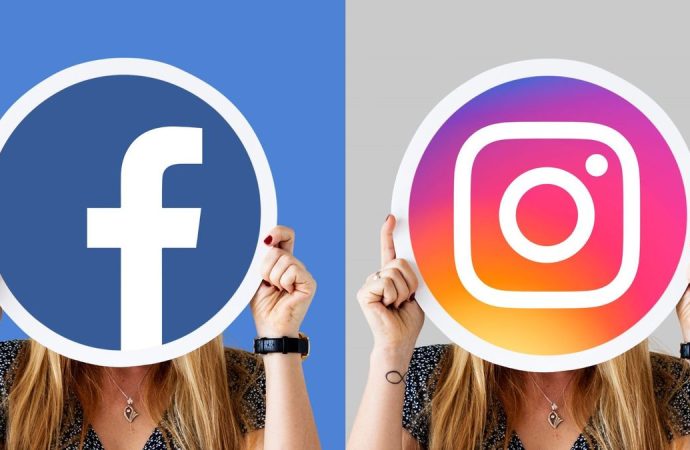Introduction In the digital age, social media has become an integral part of our daily lives, influencing how we communicate, consume information, and even form opinions. Central to this experience are social media algorithms, the complex mathematical formulas that determine what content appears in our feeds. These algorithms play a pivotal role in shaping content
Introduction
In the digital age, social media has become an integral part of our daily lives, influencing how we communicate, consume information, and even form opinions. Central to this experience are social media algorithms, the complex mathematical formulas that determine what content appears in our feeds. These algorithms play a pivotal role in shaping content discovery, influencing what we see, engage with, and ultimately, how we perceive the world around us.
Understanding Social Media Algorithms

Image by: Google.com
Social media algorithms are designed to sort posts in a user’s feed based on relevancy instead of publishing time. These algorithms use various factors to determine the order of posts, including user behavior, engagement levels, and content type. By analyzing these factors, social media platforms can deliver personalized content that is most likely to engage each user.
Key Components of Social Media Algorithms
- User Behavior: Algorithms track user interactions, such as likes, shares, comments, and time spent on certain posts, to gauge interests and preferences.
- Engagement Levels: Content that garners high engagement is often prioritized, as it is deemed more relevant and valuable to users.
- Content Type: Different types of content, such as videos, images, or articles, are weighted differently based on user preferences and platform-specific trends.
- Recency: While relevancy is key, the freshness of content still plays a role, ensuring that users receive up-to-date information.
The Impact on Content Discovery

Image by: Google.com
- Personalized Feeds
One of the most significant impacts of social media algorithms is the creation of personalized feeds. By analyzing user behavior, these algorithms curate content that aligns with individual preferences, making the user experience more engaging and relevant. However, this personalization can also lead to the formation of echo chambers, where users are primarily exposed to content that reinforces their existing beliefs and opinions.
- Content Virality
Algorithms play a crucial role in determining which content goes viral. By prioritizing posts with high engagement, social media platforms can amplify content that resonates with a large audience. This virality can have both positive and negative effects, from spreading important information quickly to propagating misinformation.
- Influencer Dynamics
Social media influencers rely heavily on algorithms to reach their audience. Understanding how these algorithms work can help influencers optimize their content for maximum visibility and engagement. However, frequent changes to algorithms can also pose challenges, requiring influencers to constantly adapt their strategies.
- Discoverability of Niche Content
While popular content often gets the most visibility, social media algorithms also help users discover niche content that aligns with their specific interests. By analyzing user behavior and preferences, algorithms can surface content from lesser-known creators, providing a platform for diverse voices and perspectives.
Challenges and Criticisms

Image by: Google.com
- Echo Chambers and Filter Bubbles
One of the primary criticisms of social media algorithms is their role in creating echo chambers and filter bubbles. By prioritizing content that aligns with user preferences, algorithms can limit exposure to diverse viewpoints, reinforcing existing beliefs and potentially fostering polarization.
- Misinformation and Fake News
The virality driven by social media algorithms can sometimes amplify misinformation and fake news. Content that evokes strong emotional reactions is more likely to be shared, regardless of its accuracy. This can lead to the rapid spread of false information, with significant societal implications.
- Algorithmic Bias
Algorithms are not immune to bias. They can inadvertently perpetuate existing biases present in the data they are trained on. This can result in unequal representation and visibility for certain groups, raising concerns about fairness and inclusivity.
- Lack of Transparency
The inner workings of social media algorithms are often shrouded in secrecy, making it difficult for users to understand how their content is being curated. This lack of transparency can lead to mistrust and skepticism, with users questioning the motives behind the content they see.
Future Trends

Image by: Google.com
- Increased Personalization
As algorithms become more sophisticated, the level of personalization in content discovery is expected to increase. Advances in artificial intelligence and machine learning will enable even more precise targeting, enhancing user engagement and satisfaction.
- Ethical Considerations
The growing influence of social media algorithms has prompted calls for greater ethical considerations in their design and implementation. There is a push for more transparency, accountability, and efforts to mitigate biases, ensuring that algorithms serve the broader public interest.
- Regulatory Scrutiny
Governments and regulatory bodies are increasingly scrutinizing social media platforms and their algorithms. There is a growing demand for regulations that promote transparency, protect user privacy, and address the spread of misinformation.
- User Control
Future developments may see users gaining more control over the algorithms that shape their content discovery. Features that allow users to customize their feed preferences and provide feedback on the content they see could enhance user agency and satisfaction.
Conclusion
Social media algorithms are powerful tools that shape the way we discover and interact with content online. While they offer numerous benefits, such as personalized feeds and enhanced content discoverability, they also pose significant challenges, including the risk of echo chambers, misinformation, and algorithmic bias. As these algorithms continue to evolve, it is crucial to address these challenges through ethical considerations, regulatory measures, and increased transparency. By doing so, we can harness the power of social media algorithms to create a more informed, inclusive, and engaging digital landscape.
















